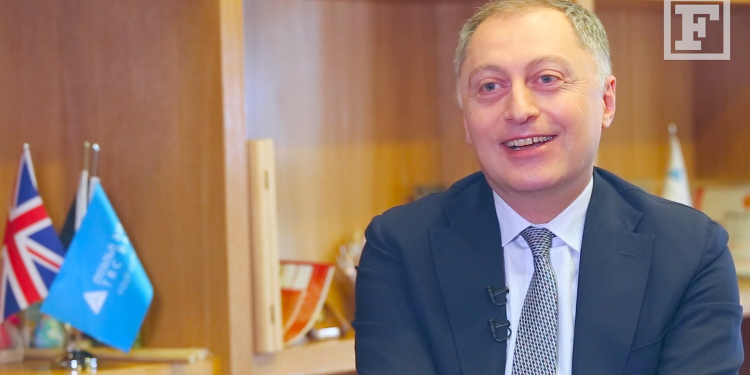TBC Capital’s research about the fast-moving consumer goods sector is the first investment analysis to have been done of this sector. Preparation of the survey was led by the growing demand from market participants and investors to have reliable, trustworthy and competent information about the sector. Consequently, the research aims to show companies and potential investors the current situation of the market and the potential for development of the sector.
Fast-Moving Consumer Goods (FMCG) are products that are sold quickly and at a relatively low cost. Examples include non-durable goods such as packaged foods, beverages, toiletries, over-the-counter drugs, and other consumables. Many fast-moving consumer goods have a short shelf life, either as a result of high consumer demand or as the result of fast deterioration.
The profit margin on FMCG products can be relatively small, but they are generally sold in large quantities; thus, the cumulative profit on such products can be substantial. According to BASES, 84% of fast-moving consumer goods professionals are under more pressure to quickly bring new products to the market than they were five or ten years ago. With this in mind, 47% of those surveyed confessed that product testing suffers most when deadlines are accelerated.
The top 4 players of the Georgian organized FMCG market reported total sales of GEL 930 mln in 2017, representing over 70% of organized market sales. Carrefour is leading with 29% of the organized FMCG market, followed by Nikora Trade with 21%, while Ori Nabiji and SPAR hold 13% and 10%, respectively.
“TBC Bank is the main partner of the large group of companies working in this sector, and therefore the sector is a priority for the Bank. That’s why TBC constantly offers sector participants their banking products, as well as investment banking services,” said Giorgi Tkhelidze, Deputy Director of TBC Bank.
According to TBC Capital Survey, the fast-moving consumer goods sector in Georgia will grow to 11 million Lari in the next 6 years. Meanwhile, the share of branded network merchants will double. In addition, in the food and fast consumption sectors, tourism sector expenditure is also increasing.
“When the sector sees average growth of up to 6%, tourism stands at 19% growth in FYG products. Travel today is an important force in our economy and this trend will follow these expenses too,” said Nino Tskhadaia, Head of Research and Brokerage at TBC Bank.
“Our forecast is that the FMCG sector should increase by about 6 percent over the next 6 years, while the market share in the sector itself will literally double,” Tskhadaia added.
According to the survey, the share of branded network merchants on the market reached 16% in the last year. By 2017, the volume of the same sector reached almost 8 million Lari, with only 16% coming from organized or branded network merchants. The survey shows that network shopping centers are concentrated in the capital city. As the research shows, the sector has great potential and is interesting to invest in.
“Retail business, which is mainly concentrated in Tbilisi with about 40%, is very interesting in the regions. Perhaps in the next 2-3 years we will have a precedent where very fast development of this industry will take place outside Tbilisi,” Vakhtang Butskhrikidze, General Director of TBC Bank, mentioned.
Representatives of networking facilities say their expectations and visions coincide with the results of research conducted by TBC Capital. For the representatives of the sector, the development opportunities in the regions were noteworthy.
“This study has shown some important aspects. The first is that the market has great potential for development. It has shown a trend whereby with time attention is slowly being turned to the regions and their development,” said Irakli Bokolishvili, General Director of JSC Nikora.
According to the study, the FMCG sector volume has increased by about 6 percent over the last 4 years.
TBC Capital is the subsidiary and licensed brokerage company of TBC Bank, offering investment banking services. Since 2017 TBC Capital has become part of TBC Bank’s corporate and investment banking business. The main business enterprises of the company are: financial consultations and credit, rating services, issuance of bonds and shares, investment research and brokerage activities.






























Discussion about this post